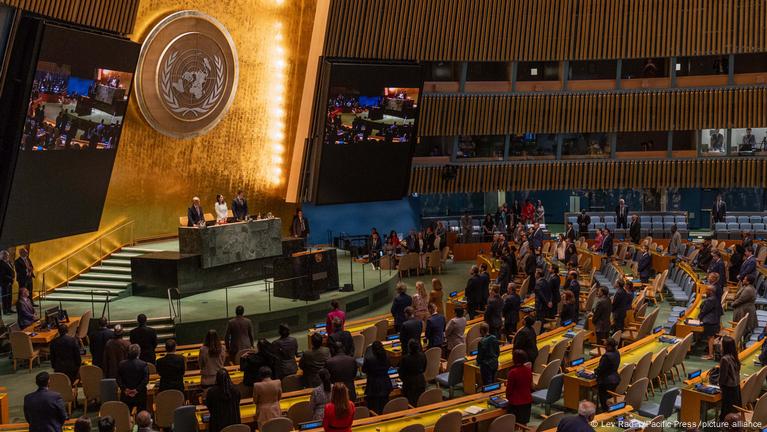The United Nations General Assembly is preparing to vote on the “New York Declaration,” a resolution sponsored by France and Saudi Arabia that seeks to revive the two-state solution to the Israel-Palestine conflict—critically, excluding Hamas from leadership in Gaza.
The resolution demands that Hamas release all hostages and relinquish control of Gaza, handing over weapons to the Palestinian Authority with international oversight. It explicitly condemns the October 7, 2023, attacks by Hamas on civilians and calls for decisive global action to end the war, secure peace, and support a sovereign Palestinian state.
Already endorsed by the Arab League and 17 UN member states, the vote is due just days before a major summit co-hosted by Riyadh and Paris on September 22 in New York. French President Emmanuel Macron has signaled his intention to formally recognize a Palestinian state at the summit.
Strategically, the declaration aims to put pressure on Israel by isolating Hamas, shifting the narrative toward a governance structure anchored in the Palestinian Authority. For many Arab states, this could help shift international diplomacy from mere condemnation toward tangible political reform.
However, Israeli Prime Minister Benjamin Netanyahu has rejected the proposal, stating his intent to prevent the establishment of a Palestinian state. For the Palestinians, particularly President Mahmoud Abbas, progress is further complicated by visa and travel issues, including the U.S.’s indication that he might be denied entry to New York for the summit.
The vote and the summit represent a pivotal moment: whether the international community moves from rhetoric to measurable steps toward statehood, and how that might reshape regional alignments amid war, humanitarian crisis, and long-standing geopolitical fault lines.












Leave a comment